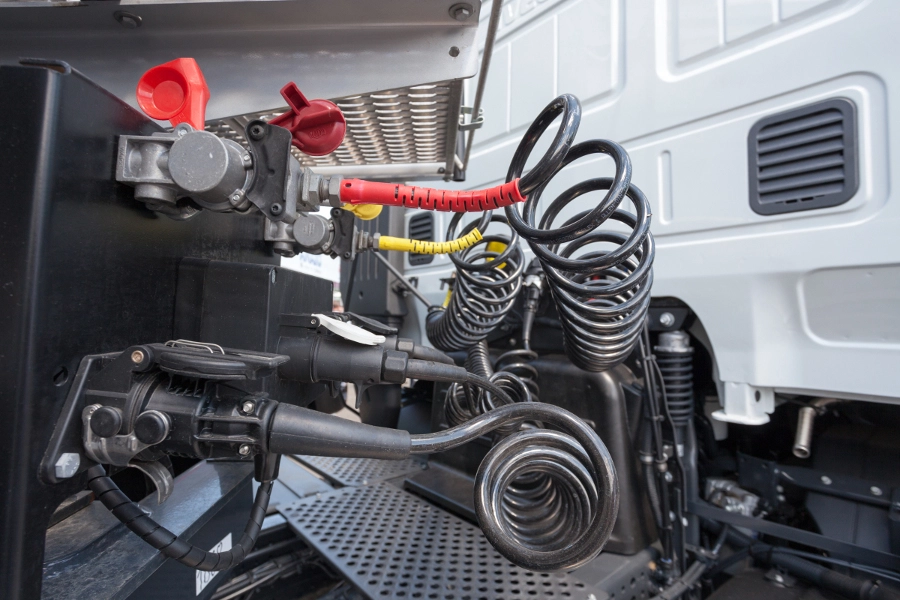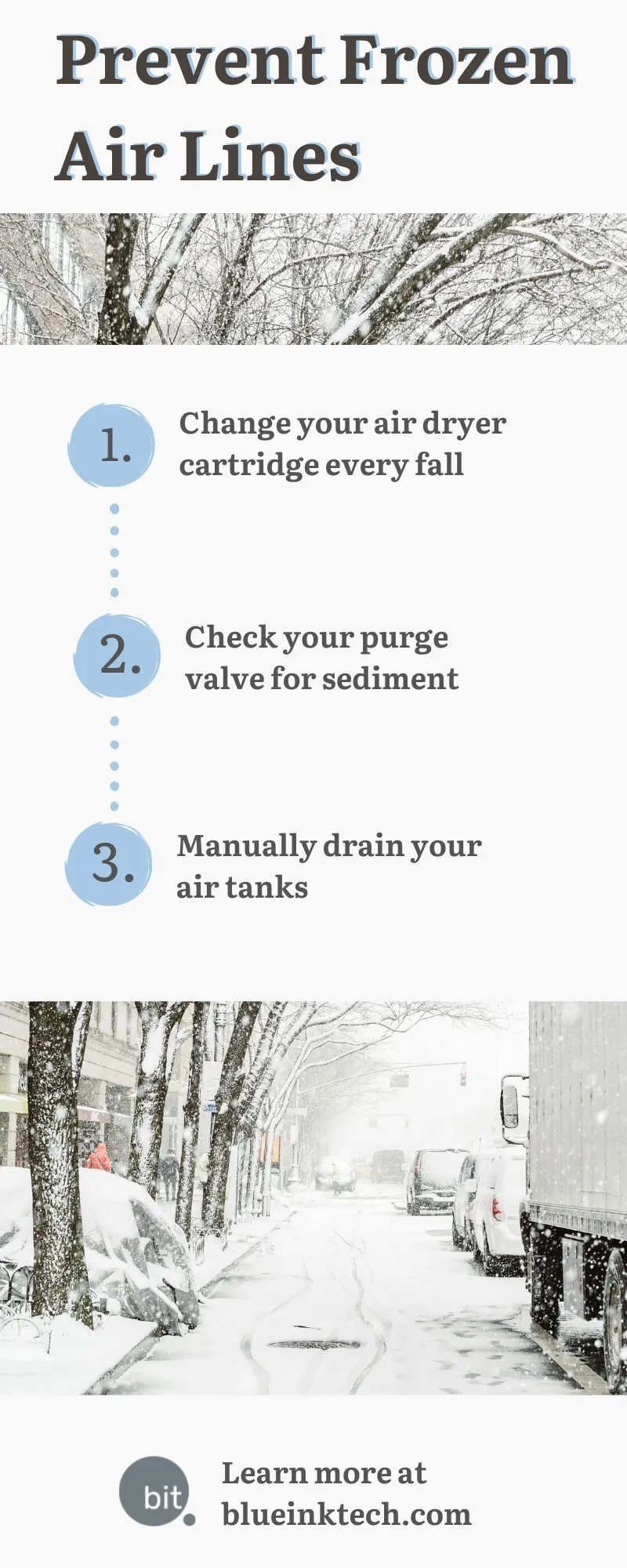
Moisture is the enemy to any piece of mechanical equipment and can cause a mess of problems. Water can make hoses and gaskets brittle, impact oil and lubricants, and the list goes on. Making sure your air lines are clear of moisture and buildup is critical for your safety.
The air system and air lines on your truck and trailer are some of the most important pieces of equipment you can manage. Any build up of water, ice or oil can affect your suspension, brakes, transmission and other automated components on your truck and trailer. This can expose you to vehicle maintenance violations and also impact your CSA score.
How does water get into the air compressor?
The air compressor system on a truck might seem complicated but when we break it down it is simple to understand. The air compressor brings in air and moisture from the air outside and runs it through an air dryer. The air dryer's job is to pull out all of the moisture that was collected and prevent it from going to the tank. Once the air is past the air dryer it is compressed and stored in a tank where it can be used later by the components that need air.
If the air dryer is old or damaged then moisture can make its way to the air storage tank and once it is here it can make its way to the air lines, brakes, suspension and the other components that need compressed air to operate. Sometimes oil for the compressor can also make it past an old dryer and cause a slurry if cold enough.
In warmer temperatures the oil or water can be bad for your truck and trailer components but in freezing temperatures this problem can be much worse. Frozen air lines can prevent your trucks components from operating at all.
What kind of damage can frozen air lines cause?
Frozen air lines can prevent your air suspension from getting air and inflating to make your ride smooth. If your air suspension is not inflated, then this can damage the suspension and ruin your air bags.
Frozen air lines can also prevent your brakes from releasing which will prevent truck or trailer from moving at all. Air is used to open your brakes and allows the wheels to turn. If ice is preventing the air from making it to the braking system, then the brakes will not release.
Typically, ice prevents the valves that operate the components on the truck and trailer from working properly, affecting everything else downstream. This could be the height control valve, pressure release valves, relief valves and so on.
Cold temperatures can also make air lines brittle and prevent them from stretching and recoiling. As the outside air gets colder lines shrink and become stiff. If air lines cannot stretch or recoil properly the can break or snap and in come cases come completely separated from fittings. This can happen when moving trailer tandems to adjust loads.
How can I prevent water from getting into my truck's air compressor?
The best way to prevent water from causing damage to your air compressor system is to make it make it part of your preventative maintenance program. Some good practices to keep when it comes to maintaining your air compressor are:
- Changing your air dryer cartridges every fall. This will put you in the best possible position to prevent water from getting into your air system during the winter. Since oil can be particularly damaging to pneumatic parts using oil-coalescing cartridges is a safe bet.
- Check the purge valve for sediment build up. Salt and other road chemicals can cause corrosion and damage parts. Cleaning or changing the purge valve is relatively quick and a easy part of preventative maintenance.
- Periodically manually drain your tanks. Every 1-3 months manually drain your air tanks. This will let you show how the air dryer is doing and will get any water that is in the tank out before it makes it to other components.
Can alcohols, de-icers or anti-freeze remove ice?
Using alcohols, de-icing chemicals or an anti-freeze can cause more harm than good when trying to clear ice from lines. These contain chemicals that can affect lubrication on brake valves, degrade gaskets, o-rings and seals. This can cause bigger and more costly problems later on. If you are in a pinch and have to use them then limiting how you use these chemicals and trying to focusing them to the problem as best as you can is ideal.


